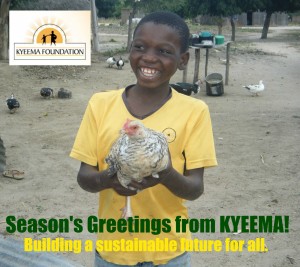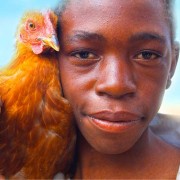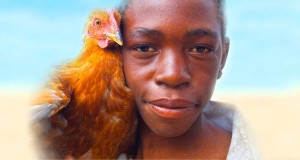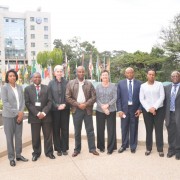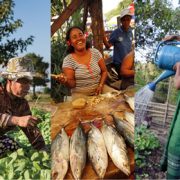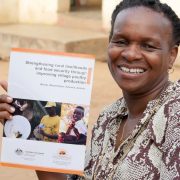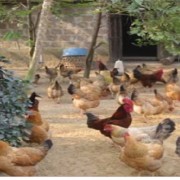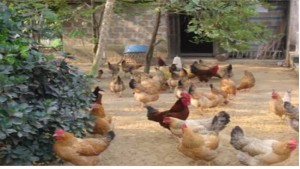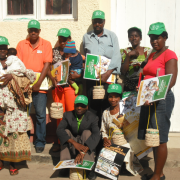Support rural livelihoods in Malawi this Christmas
Are you looking to put your money towards something meaningful in this season of giving? It has been a tough year globally. More and more we are seeing the consequences of stark inequalities and deepening poverty. KYEEMA Foundation is committed to the 2030 Sustainable Development Goals of the UN which seek to end poverty, protect the planet, and ensure prosperity for all.
We support village chicken production through both vaccination against Newcastle Disease and also capacity building in poultry husbandry. Rural poultry have an important role to play in poverty alleviation and the improvement of food security. They provide their owners with meat and eggs that can be consumed by the family, bartered or sold to provide additional income or used to fulfil social obligations. They also provide manure, are active in pest control and are essential for many traditional ceremonies and treatments. In many countries the birds are owned and managed by women and children, so provide an avenue for empowerment of some of the most vulnerable community members.
This year, we are running a Christmas donation drive to support the National Rural Poultry Centre (NRPC) in Malawi. Specifically, we will be delivering all tax deductible donations to support the training and resourcing of community based vaccinators. $5 will buy a flask for carrying vaccine, $10 will pay for the vaccinator’s shirt and cap; $25 will pay for the entire kit including information posters, training manual and flipchart. It costs about AUD $100 to train a local person to be a vaccinator and about the same to purchase a bicycle for them to carry out the vaccination campaigns.
Our associate and Malawi based director of the National Rural Poultry Centre (NRPC), Dr Pat Boland, explains the importance of this activity:
“Training of community based vaccinators is a crucial step in supporting rural communities in Malawi to prevent Newcastle disease. This disease appears several times each year and, without vaccination, kills most of the chickens in the village. Our first-hand experience is that communities who start vaccinating see the benefits and press for more. There is strong support at the grass roots level, which is important. One vaccinator typically vaccinates around 500-600 chickens in the villages where s/he lives. A community based vaccinator without a bicycle can vaccinate chickens in nearer villages but s/he is logistically hampered in reaching outer-lying areas. Our work involves village chickens which are normally let out early in the morning to scavenge about for food. If the vaccinator arrives late the chickens have already been released and cannot be caught to be vaccinated. With a bicycle, the vaccinator’s target area can be increased significantly simply because s/he can arrive in good time. We have seen the impact of bicycles for this work not just in Malawi but also in countries as disparate as Sri Lanka and Mozambique.”
Visit www.kyeemafoundation.org to read more broadly about the work we do with smallholder poultry farmers in Asia and Africa. Visit our donations page to make a contribution to NRPC’s planned activities in 2016. We will send you a thank you e-card and an update on the collective amount raised. Also, become a member for free and continue to hear about how our work makes a real difference in Malawi and elsewhere.


